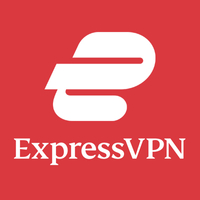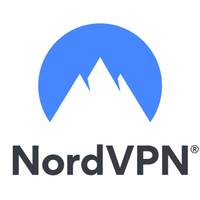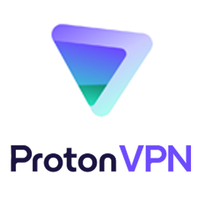Finding the right tool for the job can be a daunting task, though and that’s partly down to the fact that security and privacy are often confused. Privacy is the act of keeping what you do on the internet private and anonymous. That includes avoiding invasive practices like websites or social media apps tracking. As a rule of thumb, you should try to limit the ‘legitimate’ use of your data as much as you can – whether that’s for marketing, advertising, consumer research purposes and the like. Security, on the other hand, is how you’re protected from malicious threats. That means preventing cybercriminals from intercepting your internet traffic or stealing your sensitive identifying information. The most secure VPN is likely to be a very private VPN too, but the opposite might not be true – so how can you tell? The good news is that we regularly test a ton of software, so below are the top five providers on the market right now.
What makes the most secure VPN?
Let’s start up with privacy. First up, you should make sure your VPN has a quality no-logging policy. If a provider doesn’t keep any logs on its users, this means that whatever the situation – government investigation, server hack, data breach – your info will be safe because it was never stored in the first place. Reliable encryption is a must in terms of security. Look out for at least AES-256 encryption and a good range of protocols, too. WireGuard is now the industry standard as it combines tight security and excellent speeds. OpenVPN, though, is still a good choice for most users. Perfect Forward Secrecy is a great addition for getting an extra layer of security. It changes your key on every login and at least each hour thereafter. A kill switch is another essential feature, too. Our top pick ExpressVPN fulfils all those criteria and more, and it’s the one we use to protect our own data. However, all the providers on this list are reputable choices we’re happy to recommend.
See who wins in ExpressVPN vs NordVPN
The most secure VPNs today
If you’re looking for the most secure VPN to protect your data and browsing habits, ExpressVPN should be at the top of your list. First up, ExpressVPN has undergone an independent security audit which has proven its no-logging claims. And, possibly more impressively, this has held up in practice – in 2017, a Turkish ExpressVPN server was seized by the authorities, but no data was either stored on the server or handed over by ExpressVPN itself. That’s what we call a good track record. TrustedServer is another excellent addition to Express’s arsenal of security features. In essence, this means that all ExpressVPN’s servers run on RAM, not traditional hard drives. All data is wiped every reboot, and information cannot be stored by design. Servers that run on hard drives can be difficult to fully erase and pose a security threat. However, possibly the best thing about ExpressVPN is the fact that while it incorporates state-of-the-art security features, for the user it’s as simple as selecting a server and tapping ‘connect’. While you can change tons of options behind the scenes, you can also just go with the recommended settings and feel safe. It is worth noting that its top speeds we’re mid-pack last time we checked, at around 560Mbps. However, that’ll be more than enough for most users, and on a domestic line of around 100Mbps it’s impossible to tell the difference. As an overall package, ExpressVPN is both the easiest and most effective way of keeping yourself secure online. Plus, this Tom’s Guide exclusive offer will get you an even better value for money… Well known as a name to trust in the web security world, in our NordVPN review we found that the famous provider is a great choice if you want to keep your data private and secure. With a big name often comes notoriety, so we’ll address the elephant in the room – 2018’s server hack, and Nord’s response to it. Not at all a good situation to be in (a cybersecurity company being hacked themselves), Nord’s initial response was somewhat slow. However, four years later the firm has undertaken two independent audits, demonstrating its servers’ privacy to be solid and its no-logging claims to be true. We’ll let you decide if you want to hold the past against Nord, but we think the provider has taken substantial steps to rectify a bad situation. In terms of specs, NordVPN delivers excellent encryption, and is one of the fastest VPNs around too. You’ll also have a kill switch to protect you if your connection goes down, and interesting features like Double VPN and Onion over VPN, which uses the Tor Onion network. Plus, its new addition Meshnet is perfect for those who want to secure their workload on multiple devices at ease. On the whole, NordVPN is a seriously secure VPN provider, and we’re quite satisfied that it’s taken steps to fix its mistakes. However, as a full package, it’s just not quite as good as ExpressVPN – so that’s why it sits at #2 on this list. In our Proton VPN review we found that the Swiss provider offered a huge amount of security for its users – which is only to be expected from the providers of the highly regarded anonymous email service Proton Mail. With the recent rebrand, gone are the convoluted payment plans. There are no more tiers, and now any subscription will get you 10 simultaneous connections and, most importantly, access to Proton’s Secure Core servers. These are ultra secure, underground servers in Sweden, Switzerland and Iceland, countries known for good data privacy laws. If you choose to use them, your traffic will be routed through one of these servers first, and then to your destination. This is somewhat like NordVPN’s Double Hop, and for the security conscious it’s a big draw. Other security features include a MultiHop VPN function that adds an extra encryption layer for maximum security as well as an effective kill switch to keep your anonymity safe even if the VPN drops. We also like Netshield, and found it very useful for blocking trackers and malware. Proton VPN is also impressive as a streaming VPN, though, so don’t think that you’ll sacrifice the fun and games for absolute security. However, while it does offer a very capable free VPN, full plans are a little more expensive than the competition – but for those who care, it’s well worth it. Let’s get it straight, Mullvad is not the VPN for you if you want to unblock foreign streaming catalogs. Same goes if you’re after a service with advanced apps – although Mullvad’s work well despite lacking some basic features. However, when it comes to privacy and security this Swedish-based provider has nothing to to be shy about. You can really see its commitment to users’ privacy as it doesn’t even require any personal details to create an account. This is bolstered by a transparent no-logging and independently audited policy. What’s more, Mullvad has even recently axed recurring subscriptions to retain even less information about its customers. After our last round of testing, the provider earned further points on the security front, too, with a new DNS server audit and excellent blocking of malicious URLs. We have found zero trackers across its website and Android apps, which is another good sign that the provider takes user privacy really seriously. Mullvad also boasts high-quality encryption to best preserve your online anonymity. Its apps are also audited and open-source. This means that everyone can check the code for any vulnerabilities. And, despite its network being quite limited compared to its competitors (fewer than 900 servers worldwide), we enjoyed peak speeds of 770 Mbps with WireGuard and 600 Mbps with OpenVPN. Its real downside is on the price as it doesn’t have low-budget offers on longer subscriptions - it always costs €5 (and the equivalent in other currencies) per month. However, Mullvad’s great focus on privacy and security is worth the money. A staple of many of our best-of guides, Surfshark provides one of the most affordable yet secure VPNs. At less than $2.50 a month it’s incredible value, but don’t let that fool you into thinking it’s some second-rate knock-off – our full Surfshark review found that the bargain provider is the real deal. Surfshark provides a few features that you don’t often see together – especially at this price. That includes Multi-Hop (using two or more separate servers to further obfuscate your traffic), full 24/7 support, a kill switch, split tunneling, and ad blocking to name a few. It is worth mentioning though that we found its kill switch leaking under extreme conditions. This occurred only on Windows, and doesn’t affect its Mac VPN, and in any case under normal circumstances it’ll keep you protected. Performance-wise, it’s at the top of our speed chart when using WireGuard, with staggering peaks of 950Mbps. Speeds with OpenVPN were still below average, though. Plus, its great unblocking power make it ideal as a Netflix VPN. Surfshark has also addressed one of our major concerns by undertaking a full independent audit of its server infrastructure. Audits are becoming more and more important, and we’re glad that Surfshark has taken the time to go through the process. For the price we really can’t fault Surfshark, and if you’re looking for a cheap VPN to keep you secure, it’s a great option. NordVPN is a close runner up (opens in new tab), with useful apps and excellent performance, and Proton VPN is also definitely worth considering (opens in new tab).
Even if you don’t think you’ll be at risk of this, by using a VPN you’ll have permanent peace of mind that no matter where you are – and what networks you connect to – you’ll be totally private, safe, and secure.

















